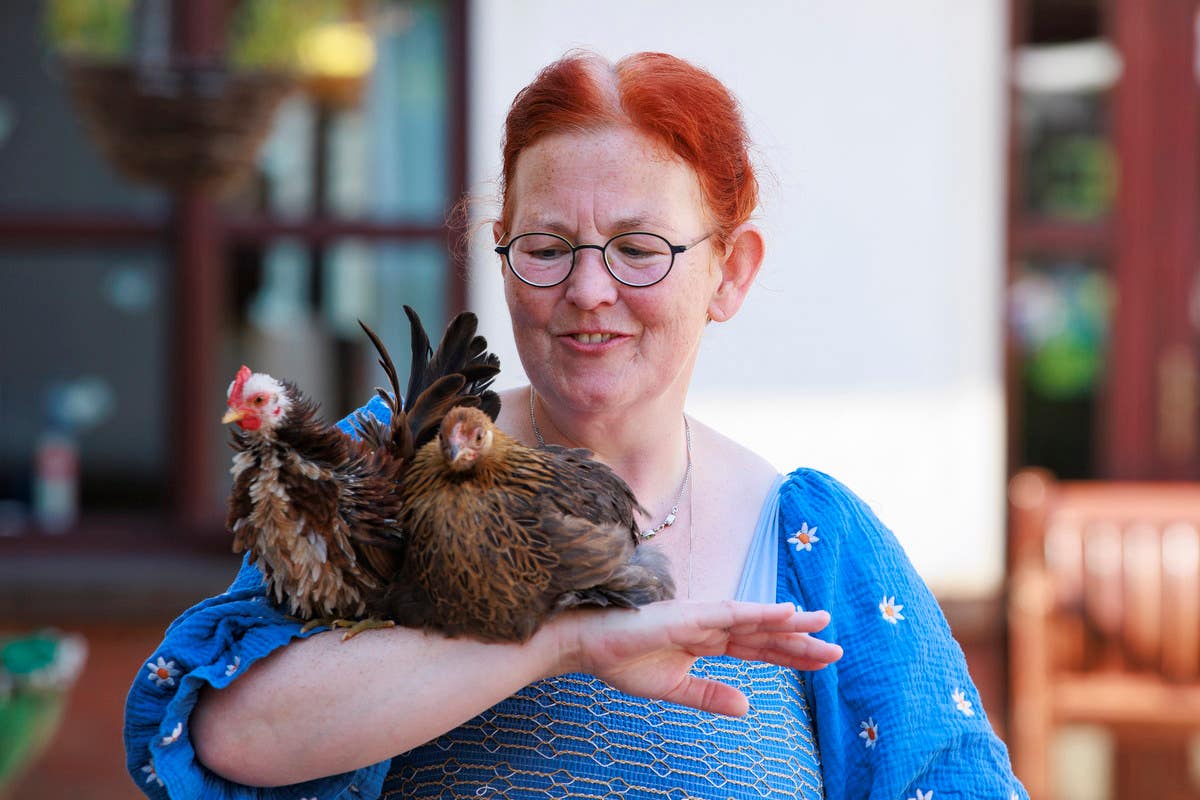Animal Whisperer’s cuddly creatures bring comfort to care home residents
Catherine Hoy said she had been collecting rescue animals most of her life.

A Northern Ireland woman is using her collection of rescue animals to bring comfort and friendship to elderly residents in care homes.
Catherine Hoy, from Craigavon, said the interaction with the animals can have a positive impact on the residents and benefit those who are suffering from dementia.
Ms Hoy – who has collected animals all her life – currently has 36 chickens, three geese, two ducks, two dogs, six tortoises, two guinea pigs, three chinchillas and a collared dove.
Living in a care home shouldn’t mean you have to lose the things you have enjoyed doing throughout your life
She said the idea of bringing her animals to brighten up the lives of elderly care home residents came to her a decade ago when she was living in England.
Ms Hoy, known to her friends as the Animal Whisperer or Wisp, said: “I had an epiphany in 2015. I have type one diabetes and have always been an animal lover.
“I was living in Plymouth at the time and it hit me that if anything happened to me, and I ended up in a care home, I would not be able to have animals around me.
“That made me realise there are probably a lot of people like that in care homes at present and I set about trying to change that.
“Living in a care home shouldn’t mean you have to lose the things you have enjoyed doing throughout your life.
“I’ve always had animals and I couldn’t imagine my life without animals.”
She added: “I thought it would be a one-hit wonder, I would go and visit one or two homes and that would be it, but then homes started asking me to come back regularly.
“In the end I had to condense hours in my office job.
“It was a great feeling seeing the residents’ faces light up.”
Ms Hoy returned home to live in Northern Ireland in 2019. However, the pandemic struck and she was unable to visit care homes for some time.
But, since restrictions eased, she is now again in demand in several care homes.
She said: “I do it voluntarily, it is not a business, I do it cause I love it.
“What you get back from this is something magical. I have done a lot of research into this with dementia especially.
“The heartbeat of the animal on their knee, it instantly seems to bring memories back, it is so magical.”
She added: “Before I bring animals in, I always try and talk to the people and explain what I’m doing and try to find that middle ground.
“I explain that I want to bring the animals in but will keep them away from them and won’t bring them into their seating area and stuff like that.
“I want to work with everyone. It’s very important that everyone is respected.”
Ms Hoy said: “I do it because it is the best feeling in the whole world.
“These are rescued animals, they are so grateful.
“The animals come first, if they are not happy it will not work.
“This is as much therapy for me as it is for the residents.”
One of the homes which Ms Hoy visits is the Seapatrick Care Home in Banbridge.
Sharon Bell, activity co-ordinator at the care home, said the visits had made a big difference for a number of their residents.
She said: “Catherine has been coming in for years.
“It’s such a big difference for people with dementia.
“If they are having an unsettled day, a wee animal in their lap can calm them down.
“It also brings back childhood memories, a lot of them grew up on farms.
“We have had a number of residents who are a lot calmer and happy through animal therapy.”
Bookmark popover
Removed from bookmarks